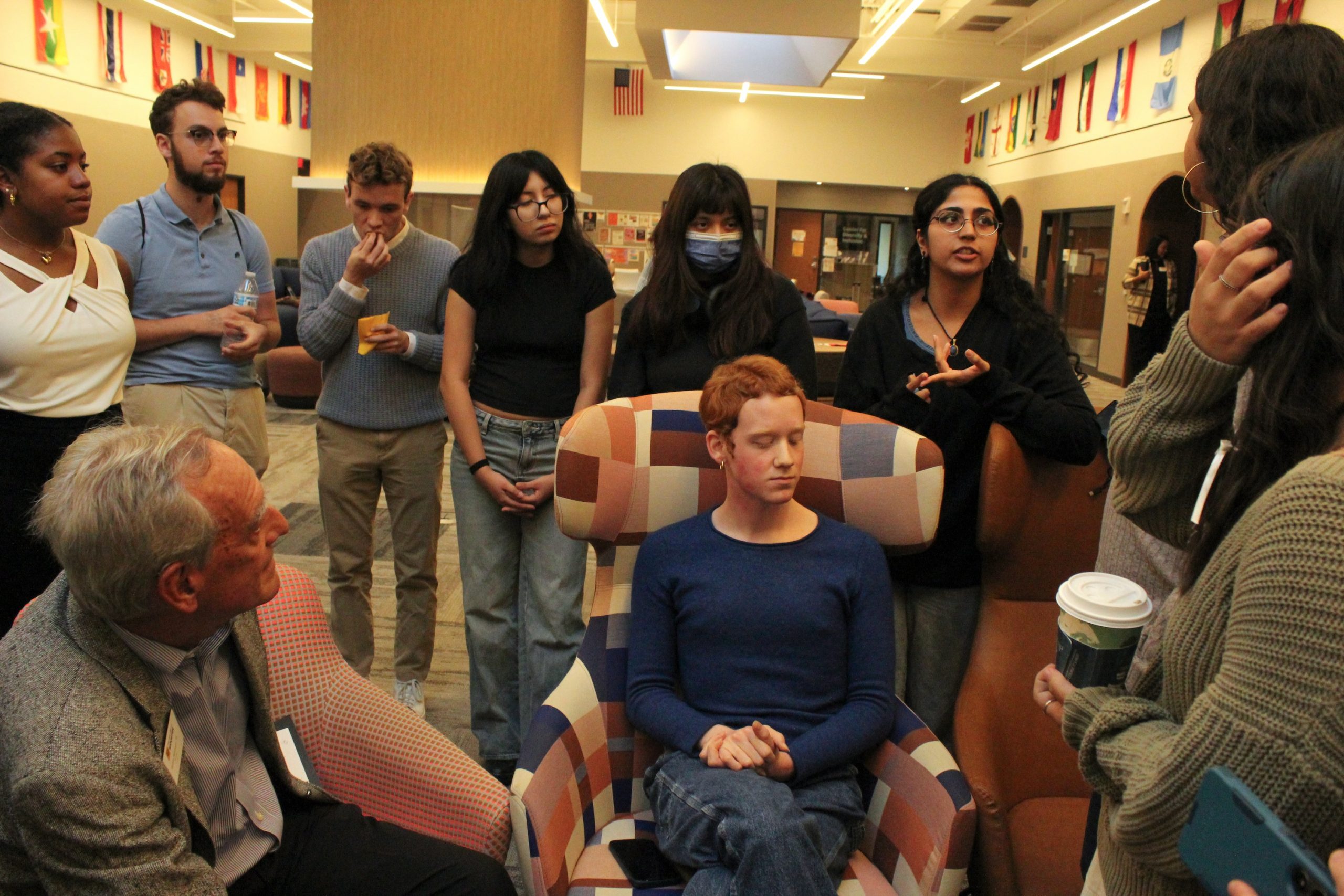
Helen Oriatti-Bruns
Chief Copy Editor
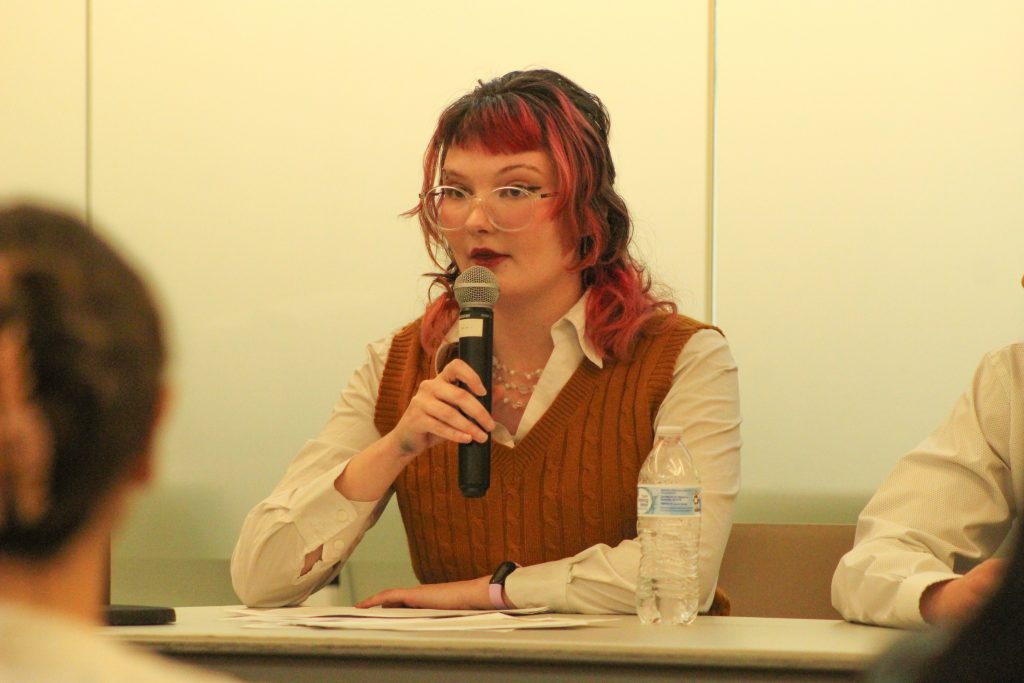
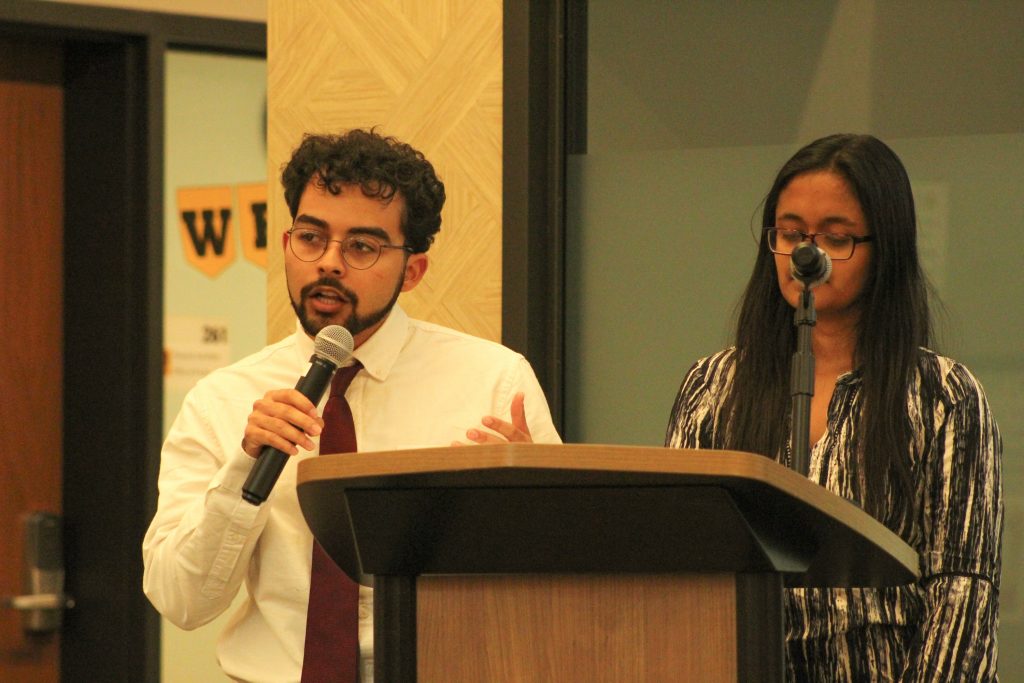
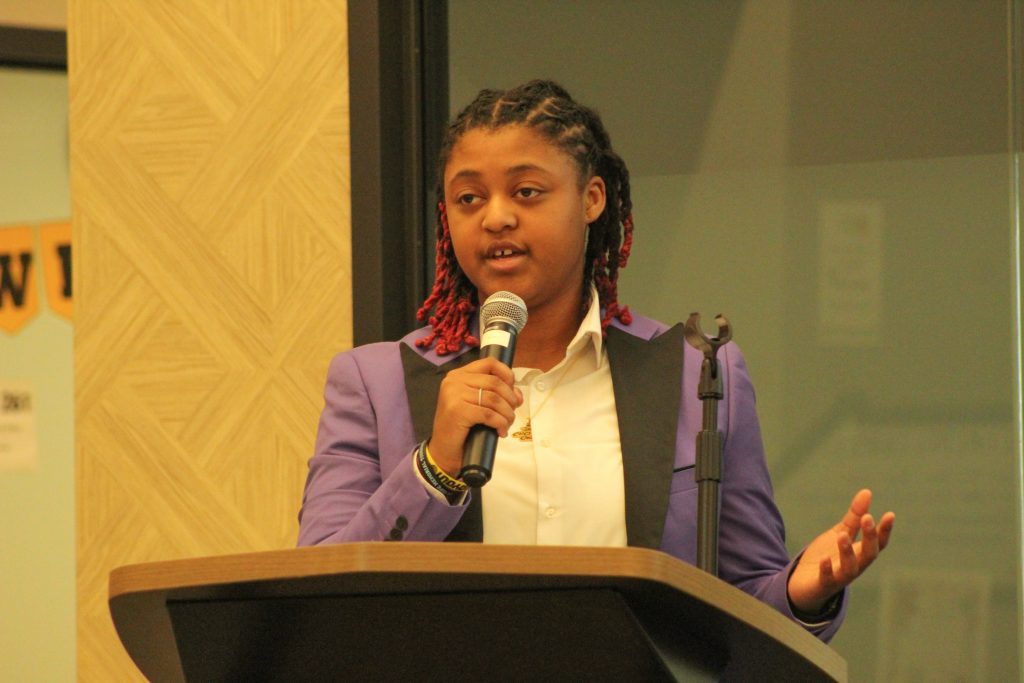
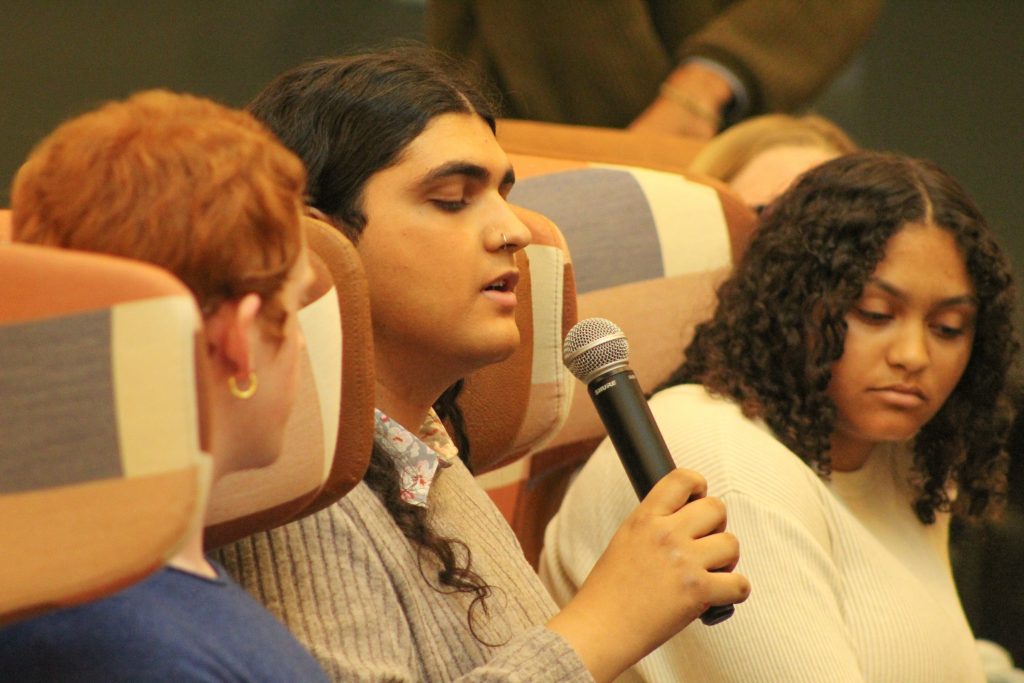
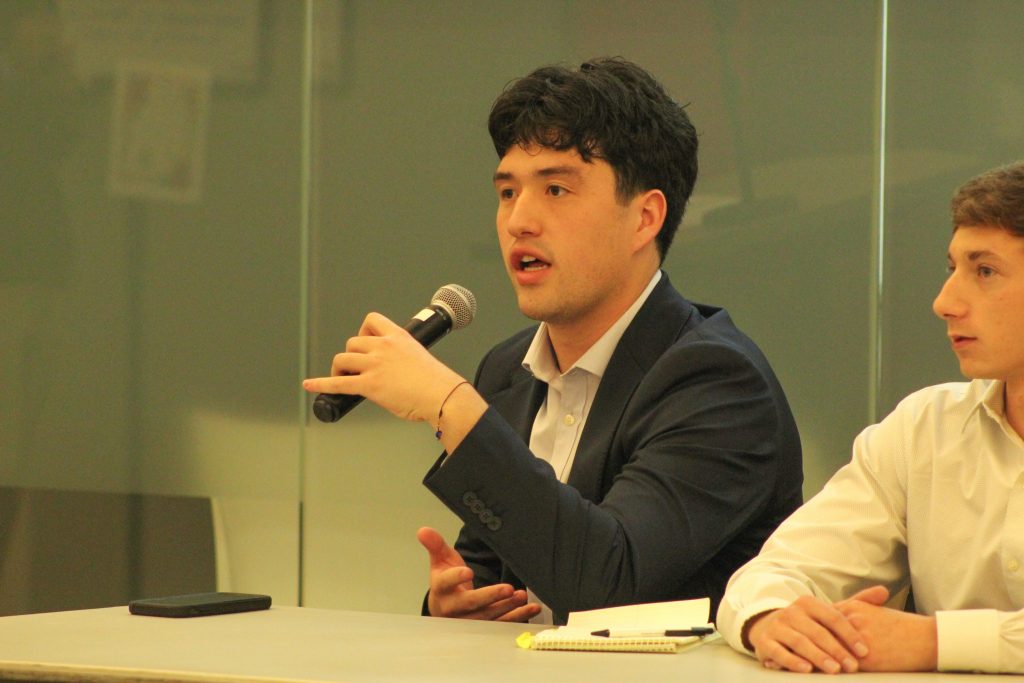
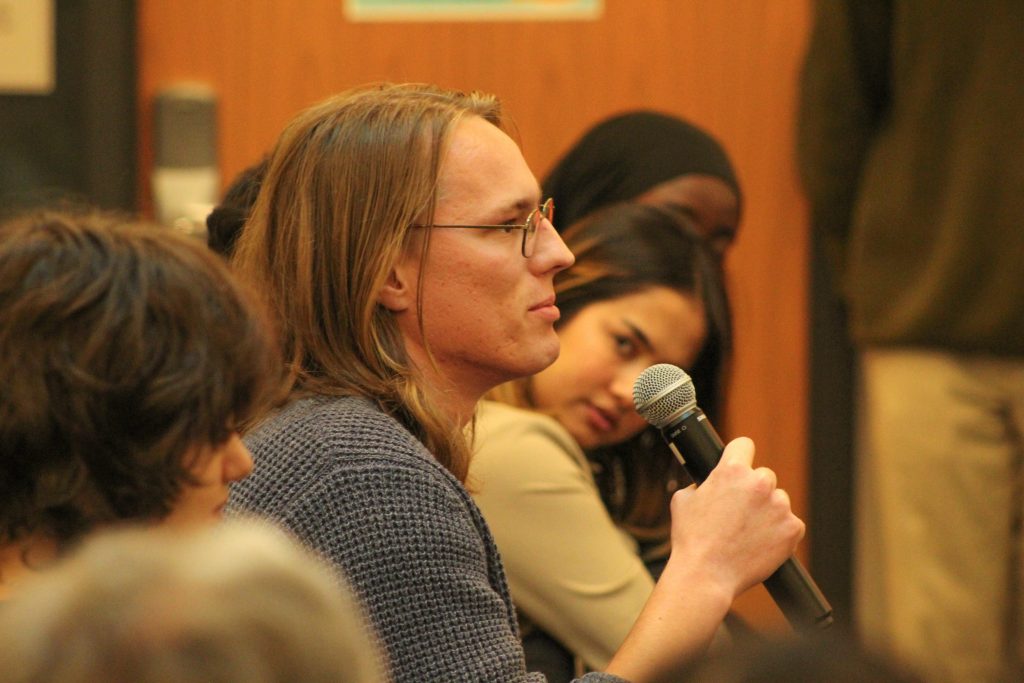
On Thursday, Oct. 24, Scot Council hosted its fall Missions and Outcomes meeting. The biannual event allows student speakers to voice concerns and opinions about the College to members of the board of trustees. The event opened with brief addresses by Andre Yazhbin ’25, president of Scot Council and Anne Wilson ’73, trustee and Missions and Outcomes Committee member. Ashley Reid, dean of students and interim vice president for student affairs and Scot Council advisor, also spoke.
Student speakers during the event discussed concerns surrounding accessibility on campus, faculty retention rates and the future of the Allen Scholars program. They had eight minutes each for their presentations and a brief question and answer session. A general open question and answer session followed, where several students advocated for divestment from weapons manufacturing. Some of these students also expressed concern about perceived censorship on campus.
The first student speaker was Gabrielle Risley ’27, a Scot Council accessibility representative, who spoke about accessibility on campus. Risley proposed adding more automatic door openers to campus buildings, leveling the surface of ramps to make them accessible to individuals with mobility aids and adding an employee whose position would focus on the physical accessibility needs of the campus.
“I think that our campus is so close to being fully accessible for everyone, regardless of mobility needs,” Risley said. “These changes will not only comply with the legal requirement, but also reflect the College’s commitment to diversity and being accessible to community members.”
The next student speakers were Anousha Datta ’27 and Ethan Hunt ’26, who spoke about concerns over the faculty retention rate at the College. Datta and Hunt are both involved in the Statistical and Data Sciences (SDS) department. According to Datta, the department has faced challenges due to professors leaving.
“[Professors leaving has] left the department with just six instructors now, with two being on leave this fall or this spring and two others offering a class in the math department as well,” Datta said.
Hunt added that the case of the SDS department is “illustrative of a wider problem,” and that professors at the College are “few and overworked.” According to Hunt and Datta, departments having a shortage of faculty creates problems like required courses not being offered during certain semesters and retired faculty coming out of retirement temporarily to teach.
“Most importantly, it’s a problem for I.S.,” Hunt said. “Especially with overworked professors, they don’t have as much time for advisees … this really is at the core part of our Wooster experience that’s getting endangered by this horrible issue.”
Datta and Hunt proposed increasing raises for newly tenured faculty and improving research resources for humanities faculty. In their question and answer portion, Claire Allison McGuire ’27, communications director for Scot Council, stated that specific data on faculty retention is not publicly available.
The final official student speaker was TyLynn Gault ’27, racial and ethnic diversity representative for Scot Council and Allen Scholar. Gault discussed concerns over the discontinuation of the Allen Scholarship, which — per Gault — was awarded annually to Black students who demonstrated “leadership, [high] academic performance and community engagement.” It was named in honor of Clarence Beecher Allen, the first African American student to graduate from the College.
“By allowing the Allen scholarship program to fade away, we’re not only dishonoring [Allen’s] name but also jeopardizing the future of any current and prospective students,” Gault said. “We must keep his legacy alive, not just through dreams or promises but through real, tangible action that continues to support Black students on campus.”
The scholarship was discontinued by the College after the June 29, 2023 Supreme Court ruling prohibiting the consideration of race in higher education admissions. According to Gault, there “was never any formal communication” to Allen Scholars about the program’s discontinuation, and the College has not implemented any alternative. Additionally, staff members who supported Allen Scholars, like Lillian Evans, former associate dean of students and director of multicultural student affairs, and Jennifer Winge, former vice president for enrollment, have left the College.
After Gault’s presentation, there was an open question and answer session for both the board of trustees and the executive board of Scot Council to field questions. A group of students had proposed a formal Missions and Outcomes presentation about divestment, but were not approved to present. According to Yazhbin, the presentation was not approved because a student spoke on a “similar topic” during the spring 2024 Missions and Outcomes meeting.
The Voice contacted the official Scot Council email to verify whether the board of trustees or Scot Council made the decision to not approve the presentation on divestment. In response, Scot Council said that the decision was made after “meeting with a Board of Trustees member” on the Missions and Outcomes Committee; the board wanted the formal presentations to “focus on student life on campus” and the impacts of McCall’s strategic plan.
Some students expressed concerns about perceived censorship of activism on campus. Pras Subedi ’27 called the cancellation of the divestment presentation “pretty alarming,” referencing President Anne McCall’s deletion of a Jan. 30 email sent by Laura Burch, associate professor of French and francophone studies.
“This isn’t the first time freedom of speech concerning Palestine was censored by the school,” Subedi said. “Students aren’t allowed to talk to any board of trustees apparently.”
Some students also expressed concern about a potential updated policy on student demonstrations. According to Flynn Cowie ’26, Scot Council chief of staff, this policy will be discussed in future Scot Council General Assemblies. Cowie also stated that this policy would reflect the Scot’s Key.
“We feel like trying to work our way through the bureaucratic systems … it’s been met dismissively,” Aidan Loop ’25 said. “[Missions and Outcomes] is sort of the last front, and this is especially concerning when we have conversations about new or enhanced guidelines on student protests.”
Loop also referenced newly implemented guidelines on student demonstrations at other universities, which — per Loop — “disincentivize” student expressive activity. John Barwick ’25 and Emma Anderson ’26 asked where students advocating for divestment could bring their concerns.
“Bring that back next time we meet, and we will have somebody to come and speak,” Wilson said. “Bill Andrew [’85] is the chair of the investment committee, and he came to the last meeting and he did a great job … I think we all learned something from hearing him.”
The event then broke up into small group discussions between trustees and students. Conversations continued for about 20 minutes.
